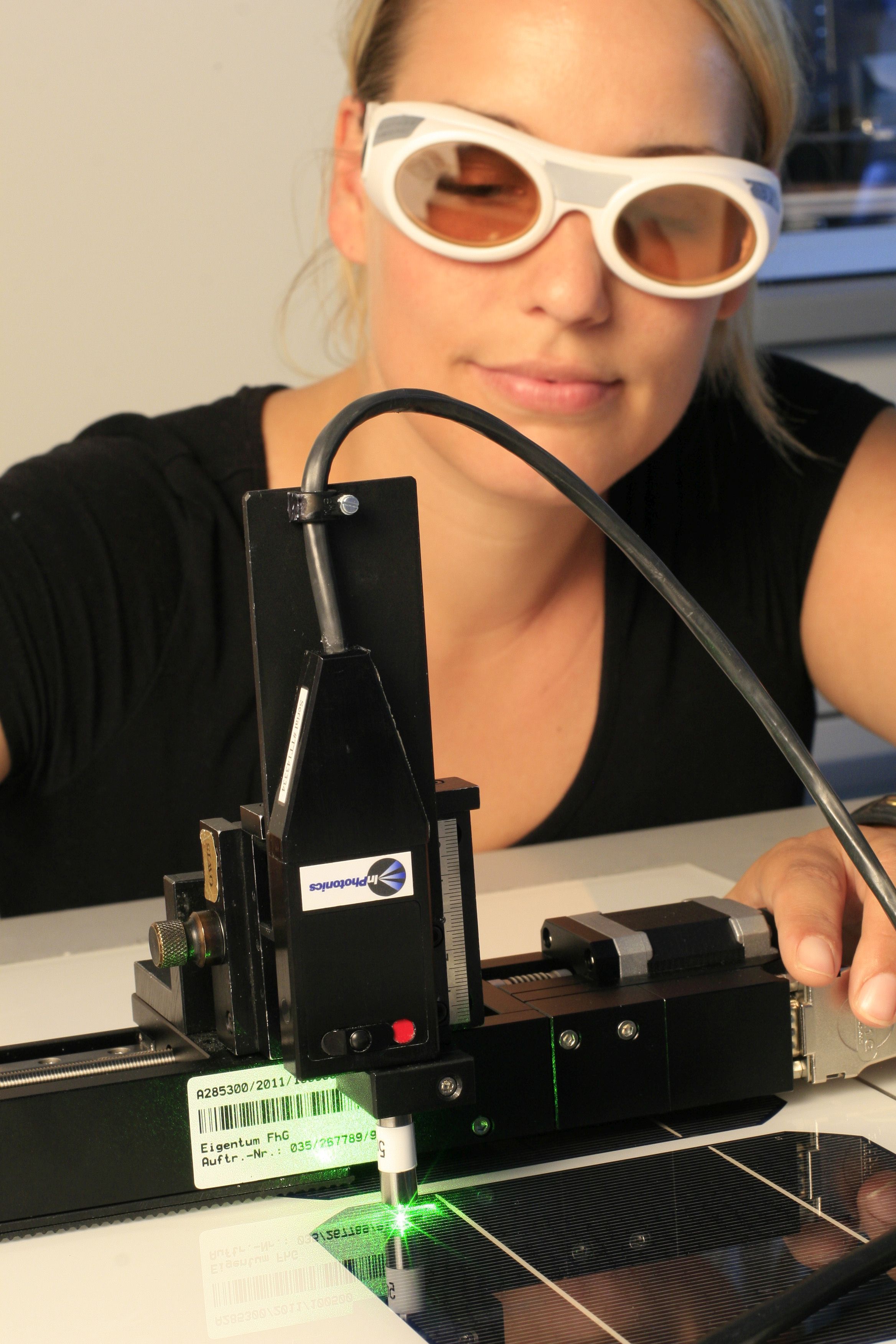Press Release #13
Experts Focus on PV Module Reliability – Fraunhofer ISE Organizes International Workshop in Freiburg
The reliability of PV modules plays a key role in the current debate on the German energy transformation. Module lifetime and durability affect the bankability of PV installations and are major factors to consider when making investment decisions. Science and industry are working on developing innovative materials and accelerated test procedures for PV modules. On 3-4 June 2014, experts from research and industry will meet in Freiburg to discuss the newest results and developments in the field. The Fraunhofer Institute for Solar Energy Systems ISE and the Joint Research Centre of the European Commission (JRC) are the joint organizers of the event.

Accelerated lifetime tests and standardization are the main topics of this year’s workshop “PV Module Reliability.” Among other themes, the field relevance of certain testing methods will be addressed, for example, test procedures for investigating the effects of single stress factors such as temperature change, ultraviolet radiation, humidity, salt and high voltage. Intensive exposure to these factors can affect the module performance. Also combined stress tests, which include a combination of stress factors, are to be discussed. Other themes on the agenda are non-destructive analyses for detecting material changes and up-to-date information on the effects of potential induced degradation on PV module performance. These last two topics are particularly important since the accelerated lifetime test results must be compared to the outdoor module performance shortly after installation (relative to the 25 years required lifetime).
New research results will be used to further develop the
“PV Durability Initiative,” a testing protocol jointly developed by Fraunhofer ISE and the Fraunhofer CSE in Boston to quantitatively rate the long-term durability of PV modules.
Speakers and Presentation Topics
Dr. Michael Köhl, organizer of the workshop and Fraunhofer ISE representative, will speak about ultraviolet radiation tests. “Aside from potential induced degradation that can be avoided by implementing certain measures, UV stress tests present one of the biggest challenges for determining the long-term stability of the PV module,” says Köhl. The cooperation partner from the Joint Research Center (JRC) of the European Commission, Tony Sample, will give a presentation on the “Analysis of I-V Characterization Measurements.”
Authoritative representatives from the following institutes will be attending the workshop:
- Case Western Reserve University, USA
- National Renewable Energy Laboratory, USA
- Florida Solar Energy Center, USA
- Energy Research Centre of the Netherlands, Holland
- National Institute of Advanced Industrial Science and Technology, Japan
- Austrian Institute of Technology, Austria
- UL International Germany
- Photovoltaik-Institut Berlin
- Loughborough University, Great Britain
- Solar-Fabrik, Germany
- Humboldt-Universität, Berlin
- Solarzentrum Stuttgart
- Fraunhofer Technology Centre for Semiconductor Materials (THM)
The detailed program for the workshop and more information can be found at:
http://www.pv-reliability.com/pv-module-reliability-workshop-2014
The Workshop Organizers
Founded 1981 in Freiburg, the Fraunhofer Institute for Solar Energy Systems ISE is the largest solar research institute in Europe. For years, the Freiburg researchers have been working on the efficiency and durability of PV modules, for example, in the EU project “PV PERFORMANCE“ or in the national project “Reliability of PV Modules.“ The main areas of focus are material requirements, economic feasibility, improvement possibilities in the construction of modules and scientific contributions to national and international working groups and committees.
The European reference laboratory ESTI (European Solar Test Installation) develops experimental methods to examine the efficiency and yield of photovoltaic devices and systems. The laboratory is part of the Joint Research Center (JRC) of the European Commission and is located at the Institute for Energy and Transport in Ispra, Italy. For over twenty years, the JRC staff has been contributing its scientific and technological expertise in photovoltaics to the working groups of the IES (International Electrotechnical Commission) and the CENELEC (European Committee for Elelctrotechnical Standardisation).
Last modified: